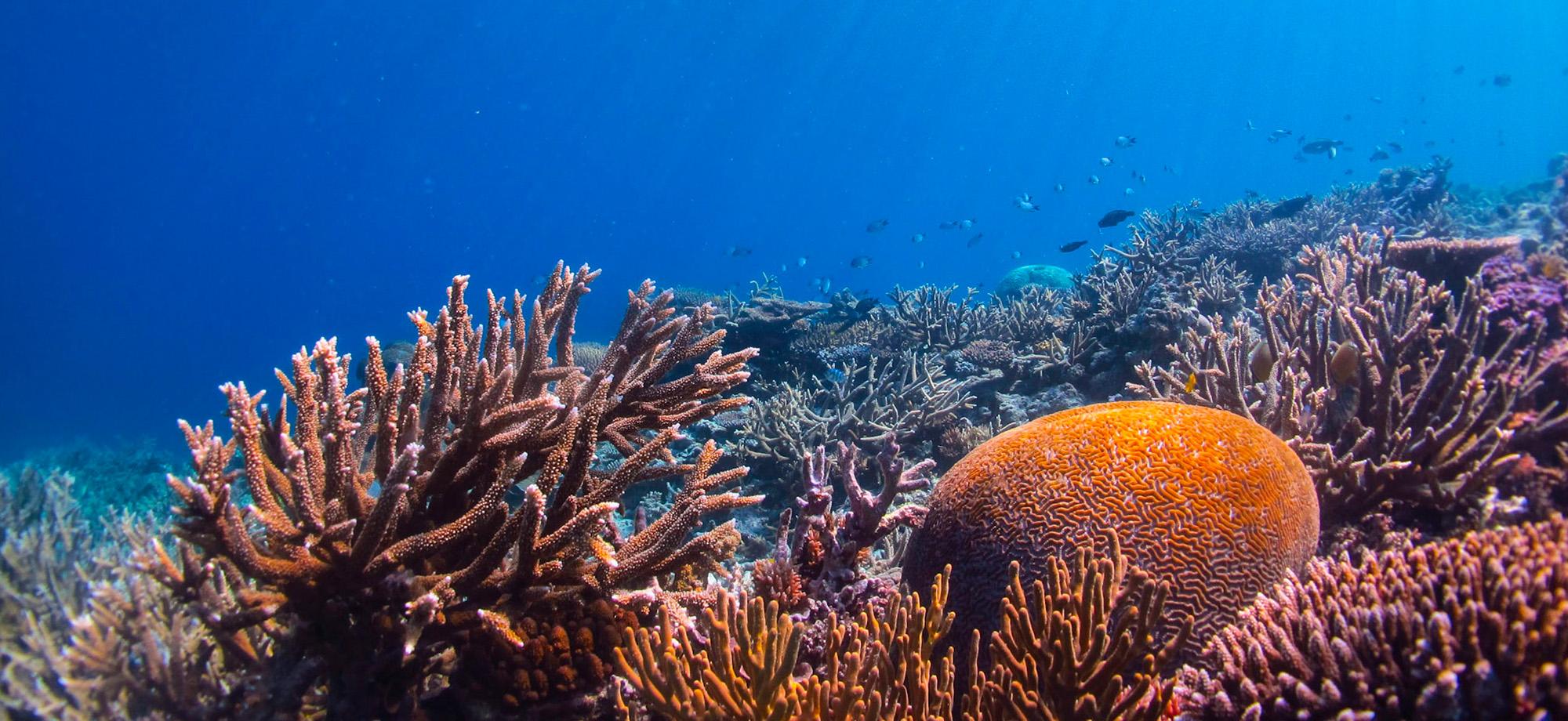The Australian Institute of Marine Science is one of several distinguished research organisations involved in the Reef Restoration and Adaptation Program (RRAP), the largest collaborative effort to help the Great Barrier Reef resist, adapt and recover from climate change.
RRAP brings together some of the best minds in marine science, traditional environmental knowledge, technology, social sciences, risk assessments, engineering and philanthropy, to create a toolkit of effective, large-scale Reef interventions that are feasible, safe, acceptable and affordable. These could be implemented if, when and where it is decided action is needed.
Modelling shows these interventions are likely to be required in addition to emissions reduction and enhancements to existing Reef management activities like marine park zoning, crown-of-thorns starfish control and water quality improvements.
These interventions would work together, reinforcing each other to protect and restore high value locations, as well as help it more broadly adapt to a warmer future.
The program works closely with Traditional Owners and indigenous groups, as well as engages community and industry stakeholders and interests in the co-design, deployment and evaluation of proposed interventions or technologies. This includes trialing large-scale deployments to improve practices and build skills for future reef restoration efforts through the operational arm of RRAP, the Pilot Deployments Program.
The Reef Restoration and Adaptation Program is funded by the partnership between the Australian Government’s Reef Trust and the Great Barrier Reef Foundation.
Visit the Reef Restoration and Adaptation Program website
Partners
Partners of the R&D program include:
- AIMS
- CSIRO
- Great Barrier Reef Foundation
- James Cook University
- The University of Queensland
- Queensland University of Technology
- Southern Cross University
AIMS' role in RRAP
AIMS is proud of its central role in the collaborative program since 2018.
Our foundational work in areas such as coral adaptation and acclimatisation, breeding and recruitment underpin many of the interventions being assessed for development. We are investigating ways to increase the heat tolerance of corals and their algal symbionts, and developing coral aquaculture methods and ways to distribute them in the wild.
Our world-leading National Sea Simulator plays a critical role in developing and testing these interventions.
We provide ecological knowledge to support and evaluate proposed interventions, and develop decision support tools for the program.
AIMS also hosts the independent Managing Entity that administers the timely and cost-effective administration of the Program. This includes:
- supporting the AIMS Indigenous Partnerships team to help guide Traditional Owner engagement including securing Free and Prior Informed Consent (FPIC) for all field activities and supporting Traditional Owner involvement in the research.
- supports the Risk team which administers an Independent Risk Review Group that provides guidance on risk assessment processes.
Future thinking since 2018
In 2018, AIMS helped steer the first phase of the collaborative program, a rigorous and comprehensive investigation into medium and largescale reef intervention. This 18-month concept feasibility study involved more than 150 scientists from more than 20 organisations around the globe. It concluded successful intervention was possible, and would benefit the Reef and Australians under a wide range of climatic scenarios, but that time was of the essence, and we had a fast-closing window of opportunity.
The research and development (R&D) phase of the program began in 2020. Interventions identified in the initial feasibility study continue to be developed, tested and risk-assessed, aiming to strike a balance between minimising risk and maximising opportunity for the Reef. Interventions proven to be successful at scale will be progressively available for future deployment should they be required.
The current RRAP R&D Program is funded by the partnership between the Australian Government’s Reef Trust and the Great Barrier Reef Foundation.
Bringing RRAP innovation to the next level
The Pilot Deployments Program takes RRAP intervention toolkits from the work bench, aquaria and lab, and trials them at increasingly larger scales on the Reef – an essential step in developing the foundation of restoration efforts of the future to support the outstanding universal values of the Reef.
As the operational arm of RRAP, the Pilot Deployment Program is working with Traditional Owners, industry partners and community groups. Together, we are developing best-practice approaches and understanding supply chains, technology and the people power needed to build a largescale operational reef restoration program and supporting coral aquaculture industry.
The three-year Pilot Deployment Program, funded by the Australian Government’s Reef Trust, officially launched in 2025 and is led by AIMS.


